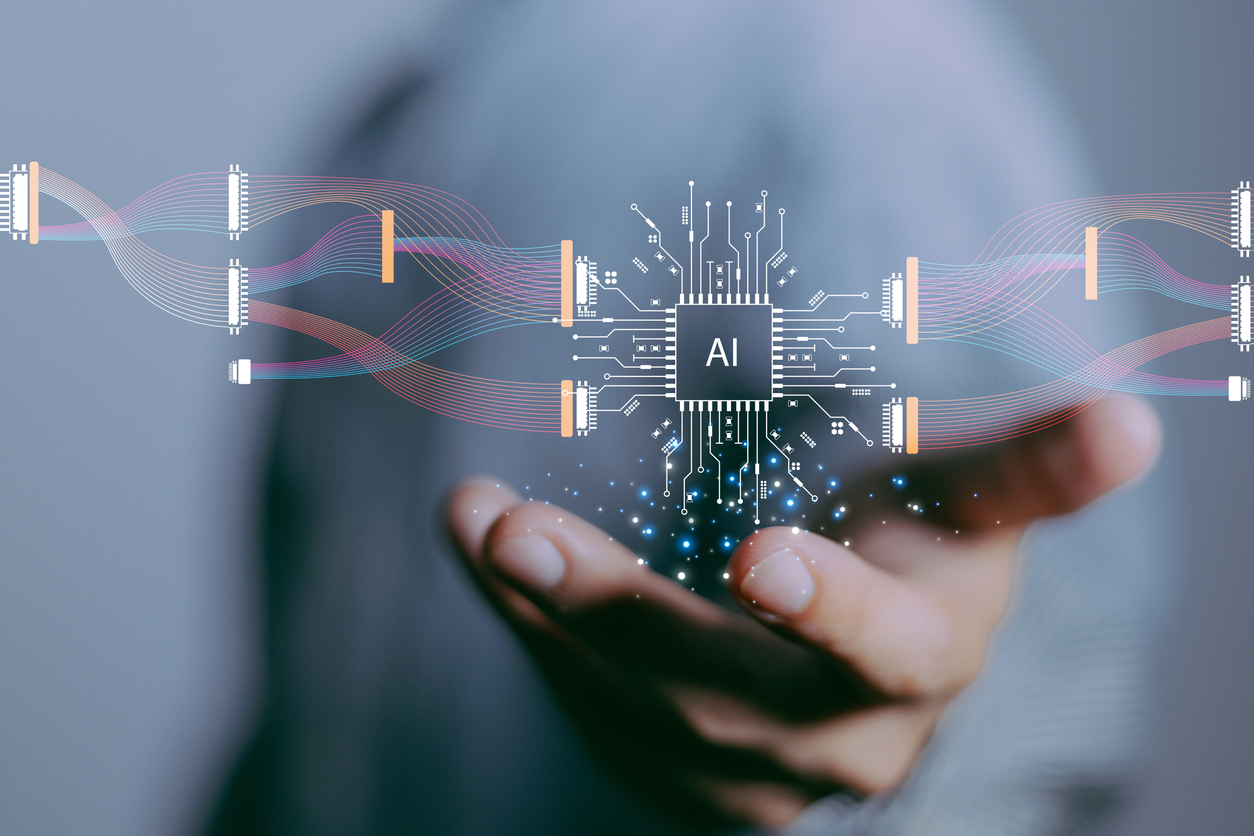
Artificial intelligence (AI) is advancing rapidly, revolutionizing industries, reshaping economies, and transforming the way we live. As AI becomes increasingly integrated into our daily lives, it’s important to understand what the future holds for this transformative technology. From advancements in healthcare and education to ethical challenges and societal impacts, the future of AI promises to be both exciting and complex. In this article, we’ll explore some of the key trends and developments expected to shape the future of AI.
1. AI and Automation: Redefining the Workforce
One of the most significant impacts of AI in the coming years will be its role in automation. AI-powered systems are expected to handle tasks that were previously thought to require human intelligence, leading to greater efficiency in industries ranging from manufacturing to logistics.
What to expect:
- Automated processes: AI and robotics will increasingly take over repetitive and labor-intensive tasks, reducing human error and lowering operational costs.
- New job opportunities: While AI may displace some jobs, it will also create new roles in AI development, management, and maintenance, requiring workers to develop new skills.
- Hybrid work environments: Rather than replacing humans, AI will complement human work by automating routine tasks, allowing employees to focus on higher-level thinking and creativity.
Pro tip:
- Upskilling and reskilling will be essential as AI continues to reshape the job market. Pursuing skills in AI, machine learning, and data analysis can open new career opportunities.
2. AI in Healthcare: From Diagnostics to Personalized Medicine
AI has already made significant strides in healthcare, and the future will see even more breakthroughs in areas like diagnostics, treatment plans, and personalized medicine. AI’s ability to analyze large datasets and identify patterns will revolutionize how we approach healthcare.
What to expect:
- AI-powered diagnostics: AI systems will continue to improve in analyzing medical images, genetic data, and patient records to identify diseases earlier and more accurately than human doctors.
- Personalized treatments: AI will help create personalized treatment plans tailored to individual patients, considering factors like genetics, lifestyle, and medical history.
- Telemedicine: AI will enhance telemedicine by providing virtual assistants for routine consultations, helping healthcare professionals focus on more complex cases.
Pro tip:
- Look for AI-driven health apps and devices that offer real-time health monitoring and insights into your wellness, allowing you to proactively manage your health.
3. AI in Education: Personalized and Adaptive Learning
Education is another area where AI is expected to make significant advancements. The future of AI in education will focus on creating personalized learning experiences that cater to individual student needs, helping to bridge learning gaps and improve outcomes.
What to expect:
- Adaptive learning systems: AI-powered platforms will tailor educational content to the unique learning pace and style of each student, providing customized lessons and practice exercises.
- Virtual tutors: AI-driven virtual tutors will assist students by offering personalized help, answering questions, and providing feedback in real-time, improving engagement and comprehension.
- Predictive analytics: AI will help educators identify students who are at risk of falling behind, allowing them to intervene early and offer additional support.
Pro tip:
- Take advantage of AI-based learning tools and platforms that provide tailored study plans, interactive lessons, and instant feedback to help accelerate your learning.
4. Ethical Challenges and AI Governance
As AI technology advances, it also raises important ethical questions regarding its development, deployment, and impact on society. Issues like bias in AI algorithms, data privacy, and accountability are likely to shape discussions around the future of AI.
What to expect:
- Ethical AI development: Companies and governments will need to prioritize ethical considerations in AI development, ensuring that AI systems are fair, transparent, and unbiased.
- Regulation and governance: We can expect to see more regulations aimed at controlling how AI is used, particularly in sensitive areas like law enforcement, healthcare, and employment. Governments will work to establish guidelines for responsible AI use.
- Data privacy concerns: As AI relies heavily on data, concerns about how personal information is collected, stored, and used will grow. Companies will need to implement stronger data protection measures to gain consumer trust.
Pro tip:
- Stay informed about data privacy policies and take steps to protect your personal information when interacting with AI-powered platforms and services.
5. AI in Autonomous Vehicles: The Future of Transportation
Autonomous vehicles (AVs) are one of the most anticipated applications of AI. As AI technology becomes more sophisticated, we can expect to see self-driving cars, trucks, and drones become a common sight on roads and in the skies, changing how we move people and goods.
What to expect:
- Fully autonomous vehicles: While semi-autonomous cars are already on the road, the future will see fully autonomous vehicles capable of navigating complex environments without human intervention.
- Improved safety: AI-powered autonomous vehicles have the potential to reduce accidents caused by human error, leading to safer roads.
- Logistics and delivery: AI-driven drones and delivery robots will streamline logistics, making same-day or even same-hour deliveries more feasible for consumers.
Pro tip:
- Expect advancements in vehicle-to-vehicle (V2V) and vehicle-to-infrastructure (V2I) communication systems that allow autonomous cars to interact with each other and their surroundings for improved traffic management and safety.
6. AI and Creativity: Enhancing Art, Music, and Design
AI is not only making waves in technical fields but also in creative industries. AI tools are now capable of generating art, music, and even writing, opening up new possibilities for creativity and collaboration between humans and machines.
What to expect:
- AI-generated content: AI will continue to assist in generating creative content, from composing music to designing logos and creating artwork. Tools like OpenAI’s DALL·E and GPT models already showcase the potential for AI in creative processes.
- Collaborative creativity: Artists, musicians, and designers will increasingly collaborate with AI to enhance their creative processes, using AI tools to explore new ideas and push the boundaries of traditional creative fields.
- AI in entertainment: AI will also play a larger role in entertainment, helping to create personalized experiences, generate new content, and even predict audience preferences.
Pro tip:
- Explore AI-powered creative tools to experiment with new artistic techniques, compose music, or even generate design ideas for personal or professional projects.
7. AI in Cybersecurity: Strengthening Digital Defenses
As cyber threats become more sophisticated, AI and machine learning will play a crucial role in improving cybersecurity. AI will be used to detect, prevent, and respond to cyberattacks, helping to protect sensitive data and critical infrastructure.
What to expect:
- AI-driven threat detection: AI algorithms will analyze vast amounts of data to detect anomalies and potential security breaches in real-time, allowing for faster and more effective responses.
- Predictive analytics: AI will help predict future cyber threats by identifying patterns in historical data, allowing organizations to prepare for potential attacks before they happen.
- Automation of security tasks: Routine security tasks, such as monitoring network activity or managing access controls, will be automated through AI, freeing up cybersecurity professionals to focus on more complex issues.
Pro tip:
- Use AI-powered cybersecurity tools to safeguard your devices and data from emerging threats, especially as remote work and online interactions continue to grow.
The future of AI is filled with opportunities and challenges that will reshape industries, economies, and everyday life. From enhancing healthcare and education to transforming transportation and creativity, AI will continue to push the boundaries of what’s possible. As AI evolves, it will be essential to address ethical considerations and ensure that the benefits of this powerful technology are accessible to all. With the right approach, AI has the potential to improve lives, drive innovation, and create a more connected and efficient world.







